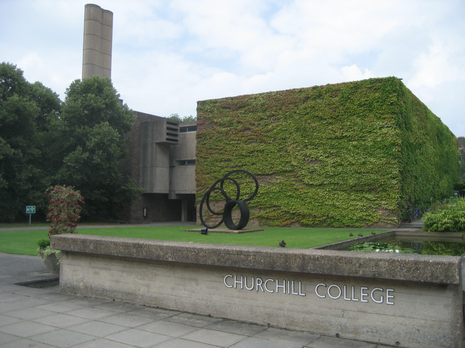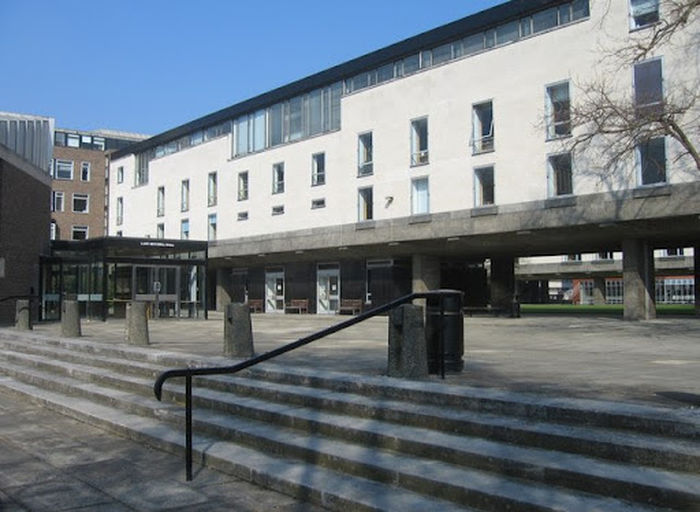Churchill Emeritus Fellow and Nobel Prize Winner Professor Antony Hewish dies aged 97
Professor Hewish won the Nobel Prize for Physics for the discovery of pulsars, which marked the first time an astronomer won a Nobel Prize

Professor Antony Hewish has died aged 97. His death on the 13th of September was announced by Churchill College.
Professor Hewish won the Nobel Prize for Physics in 1974 for the discovery of pulsars: cosmic objects that emit extremely regular pulses of radio waves.
Hewish was an Emeritus Fellow of Churchill College, and it was during his time at Churchill that he detected the first pulsars. The College stated that “the discovery of pulsars, made when he was a Teaching Fellow, brought great early distinction to the records of the young College.”
Antony Hewish was born on 11 May 1924 in Cornwall and grew up in Newquay. He was educated at King’s College, Taunton and began studying at the University of Cambridge in 1942.
Following his first year at Cambridge, he aided the war effort at the Royal Aircraft Establishment, Farnborough and at the Telecommunication Research Establishment, Malvern. During this period he worked with electronics and antennas, helping to develop a device to jam the radar of enemy aircraft. He credits his wartime experience with influencing his initial interest in radio astronomy.
During the war he also met Martin Ryle. He joined Ryle’s research team at the Cavendish Laboratory after graduating in 1948. Ryle and Hewish were jointly awarded the Nobel Prize in 1974 for their “pioneering research in radio astrophysics.” They were the first astronomers to receive a Nobel Prize.
Hewish obtained his Ph.D. in 1952 and became a Research Fellow at Gonville and Caius College. In 1961, he transferred to Churchill College as Director of Studies in Physics. He was Professor of Radio Astronomy at the Cavendish Laboratory from 1971 to 1989, and head of the Mullard Radio Astronomy Observatory from 1982 to 1988.
It was at the Mullard Observatory that Hewish and his team detected the first pulsars in 1967. Hewish discovered pulsars following an observation made by his student Jocelyn Bell. Bell and Hewish determined that regular radio waves, or pulses, they had detected were not caused by earthly interference but were energy emissions from certain stars.
Hewish and his team, including Bell, announced their findings in February 1968 in the journal Nature. The discovery of pulsars allowed scientists to make significant advances in astrophysics especially in theories of stellar collapse and the formation of black holes.
In 1989, Hewish retired and became Emeritus Fellow at Churchill College.
During his time as a Cambridge student, Hewish was a competitive rower. In a 2008 interview with Alan Macfarlane he admitted to “spending afternoons practicing on the river when I should have been in the physics lab.”
Antony Hewish married Majorie Richards in 1950 and they had two children.
In his speech at the Nobel Banquet in 1974, Hewish said: “There is, I think, some special benefit for mankind in the realm of astrophysics. It is impossible to witness the interplay of galaxies without a sense of wonder, and looking back at Earth we see it in its true perspective, a planet of great beauty, an undivided sphere. Let us try and keep this image always in our view.”
 News / Uni Scout and Guide Club affirms trans inclusion 12 December 2025
News / Uni Scout and Guide Club affirms trans inclusion 12 December 2025 News / Pembroke to convert listed office building into accom9 December 2025
News / Pembroke to convert listed office building into accom9 December 2025 Features / Searching for community in queer Cambridge10 December 2025
Features / Searching for community in queer Cambridge10 December 2025 News / Uni redundancy consultation ‘falls short of legal duties’, unions say6 December 2025
News / Uni redundancy consultation ‘falls short of legal duties’, unions say6 December 2025 News / Gov declares £31m bus investment for Cambridge8 December 2025
News / Gov declares £31m bus investment for Cambridge8 December 2025









